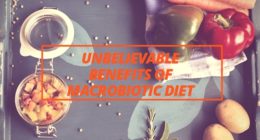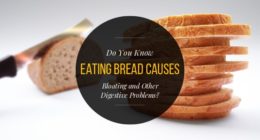Our modern diet has caused many of us to become deficient in certain minerals and our dental health can become adversely affected. Cavities in children and people of all ages are being linked to nutritional deficiencies.
Most of us take for granted that we are getting enough of the needed minerals in our diet. That assumes that everyone knows the importance of minerals for our health and wellbeing.
Much of our farmed soil has become depleted and the majority of people cannot afford a completely organic diet. Combined with dietary choices based on taste rather than health, it is easy to see how these nutritional deficiencies can occur.
Phytic Acid Locks Up Essential Minerals
Phytic acid is a substance commonly found in most grains, nuts, and beans. It has the ability to bind to minerals in your body, just like a magnet. This process removes the minerals before they get a chance to be absorbed and deposited where we need them most.
If your family’s diet consists largely of grains (crackers, cereals, bread, pasta, rice, bagels, cookies, cakes) or bean salad or raw nuts and nut butter, chances are you are getting copious amounts of phytic acid in your diet and not enough minerals for your teeth and bones to grow and remain strong.
In addition to reducing intake of these food types, there are food preparation methods, such as soaking your beans and nuts overnight that can help remove some of the phytic acids before it is consumed.
Supplementation
Keeping the immune system strong with antimicrobials can help fight off decay and prevent infection or abscesses from setting in. Popular antimicrobials include licorice, myrrh, goldenseal, and echinacea. Including garlic in your diet wherever possible is beneficial for boosting your immune system and preventing infections.
Calcium
Our dental enamel is approximately 90 percent calcium phosphate.
Calcium Rich Herb Sources
- Shepard’s Purse, Clivers, Coltsfoot, Horsetail, Toadflax, Mistletoe, Dandelion, Plantain, Pimpernel, and Chamomile.
- Include these in your diet via teas, capsules, tablets or powders.
Calcium Deficiency
The body is always communicating feedback to us. The trick is learning how to listen to the signals. Signs of calcium deficiency include:
- Rickets, unexplained nervousness, muscle spasms and cramps, joint pains, osteomalacia, cataracts, insomnia, and tremors.
Getting enough calcium is important, but the issue of effective uptake of calcium may have more to do with the lack of Magnesium, Vitamin D and K2. This can be obtained from the foods we eat or by supplementation to ensure that the calcium we are digesting is actually getting absorbed correctly. If any of these are lacking the body will pass much of the available calcium from the body before it can be used.
Vitamins A, C, and D
If not enough of these vitamins are being absorbed by the body, the teeth will break down and loosen.
Vitamin K2
Naturally found in the fermented Japanese dish of Natto Beans, this supplement has gained much attention recently. It is reported that anyone who is taking Vitamin D or Calcium supplementation should also be taking K2.
It is naturally found in egg yolks and some hard cheeses; however, the amount claimed to be needed in our diet is basically unattainable unless you are frequently consuming the fermented Natto Bean mixture.
K2 helps to deposit minerals such as calcium into the correct places in our bodies, such as the bones and the teeth and remove excess calcium from where we don’t want it deposited, such as between the joints, where it can cause painful inflammation.
Silica
Ever important for bone, teeth, skin and hair care, you can add this mineral to your diet with horsetail tea.
Paul Stewart is widely regarded as one of Ireland’s best strength and conditioning specialists. Paul began his fitness career in New York with a B.SC Degree from Adelphi University, and since then has fulfilled his early promise with an array of certs and accolades, including a Masters Degree in Education.
As Pureclass Director, Paul is responsible for overseeing all departments related to fitness and training programmes. Paul is the ultimate overachiever, whether he is leading a group class as a Spinning Instructor or reaching out to his colleagues, Paul combines gritty intensity with the ability to bring different personalities together for a single purpose.
With over 15 years in the fitness industry, Paul’s enthusiasm for fitness and gift for creating quality programs is the cornerstone of Pureclass Fitness Studios success.









